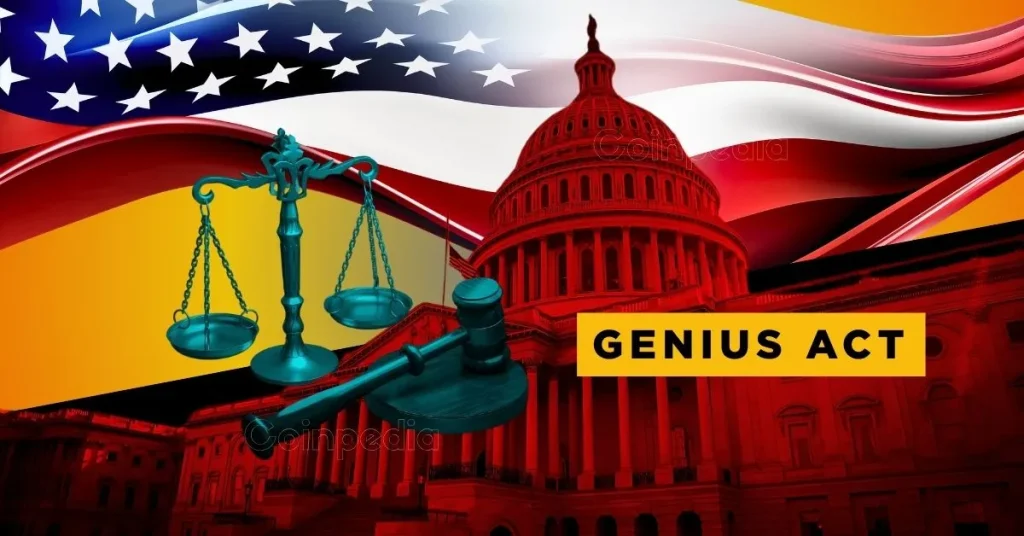Senate Votes 66-32 to Advance GENIUS Act—Crypto’s Regulatory Hurdles May Get Smarter
Washington shakes off its legislative paralysis as the GENIUS Act clears a key Senate vote—because nothing motivates politicians like the scent of fresh tech lobbying dollars.
The bill now moves to the House, where it’ll face the real test: surviving the committee process without being gutted by banking interests. Because when has Wall Street ever missed a chance to ’innovate’ via regulatory capture?
Market reaction? Bitcoin barely flinched—traders too busy chasing the next meme coin ATH to notice actual policy changes.

The U.S. Senate has passed a motion to MOVE forward with the GENIUS Act. The motion to invoke cloture — which allows the Senate to proceed with debating the bill — was approved with a 66-32 vote.
Interestingly, more than 15 Democratic senators, including Catherine Cortez Masto, Adam Schiff, Mark Warner, and Ruben Gallego, changed their earlier ‘no’ votes to ‘yes.’ However, Senate Minority Leader Chuck Schumer voted against the motion. Senator Josh Hawley was absent during the vote.
However, this vote does not mean the GENIUS Act has become law. It simply allows the Senate to begin discussing, debating, and potentially amending the bill before a final vote.
The GENIUS Act includes regulations for stablecoins — digital currencies tied to traditional assets like the U.S. dollar. Many in the crypto community see this as a positive step because it introduces clear rules, ensuring stablecoin issuers hold proper reserves like U.S. treasury bonds. It also demands more transparency about how these stablecoins are backed.
 JUST IN: Motion to invoke cloture on the motion to proceed to the consideration of the GENIUS Act has PASSED.
JUST IN: Motion to invoke cloture on the motion to proceed to the consideration of the GENIUS Act has PASSED.
15+ Dems flipped their votes from no to yes including @CortezMasto, @SenAdamSchiff, @MarkWarner, @SenRubenGallego, @SenatorWarnock and others. Senate Minority leader…
Experts say this could strengthen trust in the crypto market and protect users from risks seen in the past when some stablecoin companies lacked proper financial backing.
There’s ongoing debate about private tech companies like Meta or Square issuing their own stablecoins. Some see it as risky without strict regulations. Another concern is about political leaders, including President Trump, having financial interests in crypto-related projects, raising questions about fairness and possible conflicts of interest.
While having government figures support crypto might sound positive, experts warn it could lead to future problems if decisions appear to benefit insiders.
As reported by Eleanor Terrett, Josh Vlasto, spokesperson for CIFonX, said, “We congratulate the Senate on today’s vote. This action, and eventually passage of a stablecoin bill, clears the path for Congress to act on the mandate of voters to pass market structure legislation which creates clear rules of the road for digital assets.”

